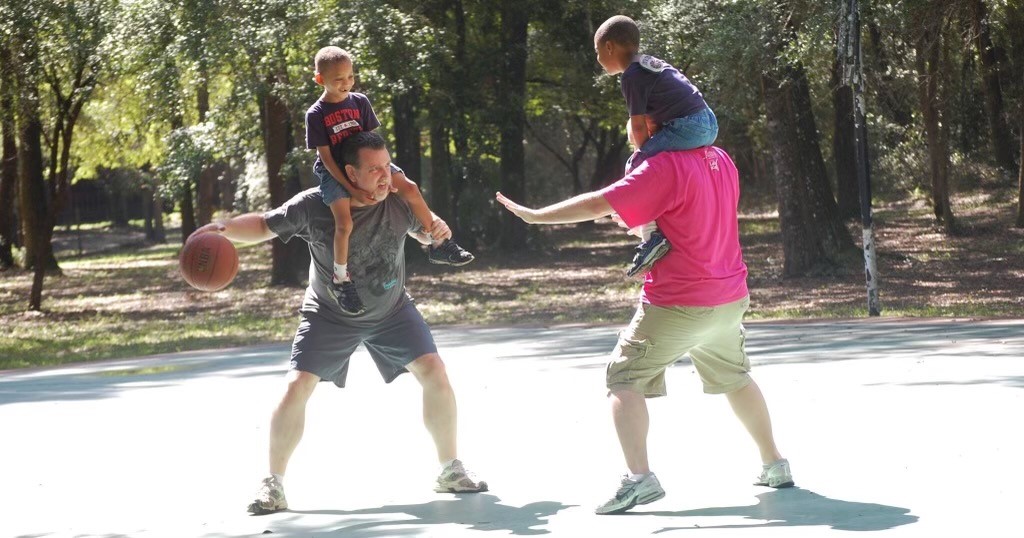
How can I report abuse?
The Florida Abuse Hotline accepts reports 24 hours a day and 7 days a week of known or suspected child abuse, neglect, or abandonment and reports of known or suspected abuse, neglect, or exploitation of a vulnerable adult.
To make a report you can:
- Report online at through the Department of Children and Families’ website
- Call 1-800-962-2873
- Florida Relay 711 or TTY 800-453-5145
- Fax your report to 800-914-0004
If you suspect or know of a child or vulnerable adult in immediate danger, call 911.
How do I become a foster parent?
Residents of Escambia or Santa Rosa counties, please contact Leigh Anne Presley at 850-739-9630 or [email protected].
Residents of Okaloosa or Walton counties, please contact Stephanie Case at 850-728-2570 or [email protected].
Residents of Leon, Jefferson, Wakulla, Franklin, Gadsden, or Liberty counties please contact Calyn Stringer at 850-264-6713 or [email protected].
Residents of Bay, Gulf, Washington, Calhoun, Jackson, or Holmes counties, please contact Debra Walters at 850-739-9634 or [email protected].
For more information click here.
How do I become an adoptive parent for children who reside in foster care?
For information about becoming an adoptive parent in Leon, Wakulla, Gadsden, Jefferson, Liberty, and Franklin counties, contact Taylor Witherow at [email protected]
For information about becoming an adoptive parent in Bay, Gulf, Calhoun, Washington, Jackson, and Holmes counties, contact Janelle Rodabaugh at [email protected]
What is Early Childhood Court (ECC)?
Early Childhood Court, often referred to as ECC or Baby Court, aims to improve child well-being outcomes for child protection involved children. ECC utilizes a trauma-informed approach by partnering with case managers, the Courts, behavioral health providers and families. Early Childhood Court addresses child protection cases involving children under the age of three. It is a problem-solving court – where legal, societal, and individual problems intersect. Problem-solving courts seek to address not only the legal issues but also the underlying non-legal issues that will benefit the parties and society as well. The goal of Florida’s Early Childhood Court is to improve child safety and well-being, change the experience and outcomes of children in the child protection system, heal trauma and repair the parent/child relationship, expedite permanency, and stop the intergenerational cycle of abuse/neglect/violence.
What is Florida Safe Families Network (FSFN)?
The FSFN system produces reports on various child welfare statistics for the Federal Department of Health and Human Services (DHHS), Administration for Children and Families. The Florida Safe Families Network is composed of
– Florida’s Statewide Automated Child Welfare Information System (SACWIS)
– Replaced Homesafenet (HSN)
– Official Child Welfare Case Record
What is Quality Parenting Initiative (QPI)?
The Quality Parenting Initiative (QPI) was created in response to a need for more quality foster parents. QPI recognizes that the traditional foster care “brand” has negative connotations and this deters families from participating. QPI is an effort to rebrand foster care, not simply by changing a logo or an advertisement, but by changing the core elements underlying the brand. Emphasis on partnership, teaming approaches to problem solving and effective communication are all staples of practicing in a QPI sensitive manner. When these practices are implemented, sites that participate in QPI are better able to recruit, train and retain quality foster parents ultimately benefiting the children and families we serve. The key elements of the QPI process are:
• To define the expectations of caregivers; and system partners
• To clearly articulate these expectations; and then
• To align the system so that those goals can become a reality.
Why is Quality Parenting Initiative (QPI) important?
The major successes of the initiative have been in systems change and improved relationships. Sites have also reported measurable improvement in outcomes such as:
• Reduced unplanned placement changes;
• Reduced use of group care;
• Reduced numbers of sibling separation: and
• More successful improvements in reunification.
When are Adoption payments processed?
On or before the 5th of each month.
When should a Foster Parent receive their monthly subsidy?
Funds are sent to the bank on record on the 15th of the month. Caregivers should expect to receive these funds when the bank posts the funds to the caregiver’s account. This is typically within or around 48 hours.